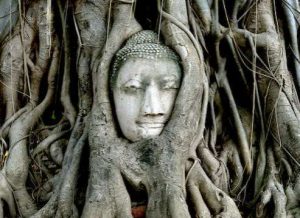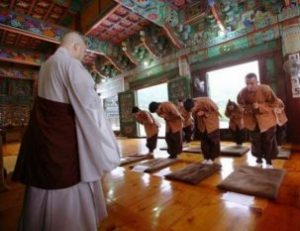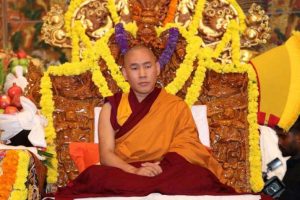
Samguk-yusa (Memorabilia of the Three Kingdoms), a 13th century text written by the renowned Korean Buddhist monk Il-yeon, is one of three historic texts from Korea to be inscribed on the Asia-Pacific list for the UNESCO Memory of the World Programme.
South Korea’s Cultural Heritage Administration announced on Saturday that Samguk-yusa and two other candidates had been granted the status during a three-day general meeting of the UNESCO Memory of the World Committee for Asia and the Pacific in Andong, North Gyeongsang Province.
Two other records were included on the list:
• Naebang-gasa (내방가사; Song of the Inner Chambers), a collection of 348 poetic works written by women in the late Joseon period (1392–1897) that documents the reality of their lives in a male-dominated society.
• More than 220,000 documents, photos, and publications related to efforts to clean up the devastating MT Hebei Spirit oil tanker spill that took place in South Chungcheong Province in 2007. The records highlight a public- and private-sector collaboration of more than 1.2 million volunteers to battle an environmental disaster.
Samguk-yusa (삼국유사) is a historical record compiled by Buddhist monk Il-yeon from 1281–85 during the Goryeo dynasty (918–1392). The book, which includes Buddhist narratives, historical accounts, legends, folklore, and other literature related to the ancient Three Kingdoms period (57 BCE–668 CE), was written by Il-yeon in the aftermath of the Mongol invasions of Korea (1231–70).
The book, compiled in five volumes and nine sections, was written at Ingaksa, a Buddhist Temple. Il-yeon (1206–89) is said to have died at the temple soon after completing the Samguk-yusa.
Several sections of the Samguk-yusa focus on the rise of Buddhism in the Three Kingdoms; descriptions of pagodas and Buddhist images; narratives of famous Buddhist monks of the Silla period (57 BCE–935 CE); tales of miracles related to esoteric Buddhism during the Silla period; stories of devotion; legends of Buddhist heroes; and folktales of filial piety and Buddhist virtues.
UNESCO’s Memory of the World (MoW) Programme is an international initiative aimed at safeguarding the documentary heritage of humanity against loss and destruction. The Memory of the World Register consists a collection of documents, manuscripts, oral traditions, audio-visual materials, and archival records of universal value. Regional lists for the program include records that have impacted five regions in the world. With the latest additions, South Korea has 22 items on the Memory of the World Programme list: six on the regional list and 16 on the international list.
According to survey data for 2021, the majority of South Korea’s population—50 per cent—holds no religious affiliation. Christians make up the largest religious segment of the population at 31 per cent, while Buddhists account for 17 per cent.
See more
Memory of the World (UNESCO)
Korean ancient book, women’s poetry listed on regional list of UNESCO Memory of the World (Yonhap News Agency)
Korean ancient book, women’s poetry listed on regional list of UNESCO Memory of the World (The Korea Times)
3 Korean books are added to regional list of UNESCO Memory of World program (The Dong-a Ilbo)
[Photo News] UNESCO-listed historic documents (The Korea Herald)
Related news reports from BDG
Two Pavilions at UNESCO-listed Buddhist Mountain Monastery in Korea to be Designated National Treasures
Japan Seeks UNESCO Listing for 1,000-Year-Old Buddhist Documents
UNESCO Lists Korea’s Buddhist Lantern Festival as Intangible Cultural Heritage of Humanity
UNESCO Listing Proposed for Sarnath, Site of the Buddha’s First Sermon
UNESCO Declares Myanmar’s Ancient Buddhist Temple City Bagan a World Heritage Site
Korea Opens Up UNESCO World Heritage Mountain Monasteries for Temple Stays
Sri Lankan President Seeks UNESCO World Heritage Status for Tipitaka
Seven Buddhist Mountain Temples in South Korea Receive UNESCO World Heritage Status















